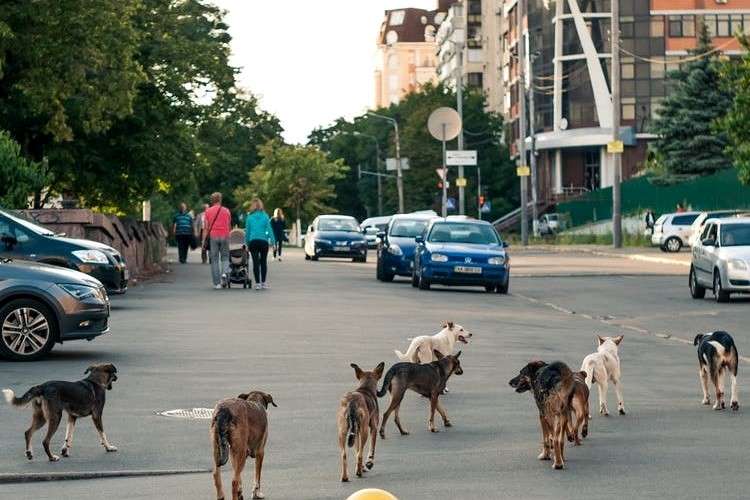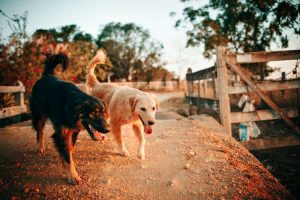
Rabies is endemic in India and the country accounts for nearly 36% of global rabies deaths caused by dog bites, says the World Health Organisation. Reports from the Union ministry of health and family welfare indicate an increase in the number of animal bites (from animals such as dog, cat, monkeys) from 42 lakh in 2012 to 72 lakh in 2020. A majority (97%) of human rabies cases in India were caused by dog bites. The National Health Profile 2021 shows that there were 55 human rabies deaths in 2020. The Union government has announced a National Action Plan for Dog Mediated Rabies Elimination from India by 2030.
There has been a number of media reports on increasing number of dog bite incidents and human rabies deaths in Kerala, suggesting that rabies vaccination of dogs (pet and stray) is not universal. Needless to say, booster vaccination coverage would be even lower. It has been estimated that animal/ dog bite incidence in Kerala was nearly 2,993 per million population in 2020 according to the National Action Plan for Dog Mediated Rabies Elimination from India by 2030 report. In 2022, reported that there were 95,352 dog bite cases in Kerala in the first half of the year.
READ I Global warming will fuel wheat price spiral, hit crop yield in India

Kerala equipped to handle dog bite cases
Kerala is relatively well equipped to test for human rabies and animal rabies which also leads to better detection. Among the 10 existing laboratories for diagnosing human rabies in India, one is in Kerala (State Public Health and Clinical Laboratory, Thiruvananthapuram) and among the 15 existing laboratories for diagnosing animal rabies in India, three are in Kerala (State Institute for Animal Diseases, Department of Animal Husbandry; College of Veterinary and Animal Sciences, Kerala Veterinary and Animal Sciences University Mannuthy; College of Veterinary and Animal Sciences, Kerala Veterinary and Animal Sciences University ).
With a high human population density (860 persons per sq km), the exposure to unvaccinated pet and stray dogs are high in Kerala, leaving the population vulnerable to dog bites. As rabies is a highly fatal zoonotic disease, it is important to have an idea of the size of the dog population in Kerala, both pet dogs as well as stray dogs, so that the government realises the magnitude and accordingly formulates a plan to address dog and human health.
READ I Tomato flu: All you need to know about the infection
The Livestock Census provides data on the household/breeder held population of dogs and the population of stray dogs. In addition, this note uses data from Directorate of Health Services, Kerala to show the yearly number of rabies deaths among people in recent years. Table 1 shows that the total dog population (pet and stray) in Kerala stood at 11.2 lakh in 2019, compared with 11.9 lakh in 2012. A few points that are worth noting are as follows:
• A decline in pet dog population between 2012 and 2019
• An increase in stray dog population between 2012 and 2019
• Larger size of pet dogs than stray dogs
• Larger population of pet and stray dogs in rural areas.
In the 2012 Livestock Census for which district level data is available, Thiruvananthapuram, Ernakulam and Thrissur had the highest pet dog population whereas Kollam, Thrissur and Thiruvananthapuram had the highest stray dog population.

Although the Kerala High Court passed an order in July 2021 that pet dogs have to be registered by their owners with local government authorities, it is unclear whether the government has made any progress on this. If all pet dogs had been registered and obtained a licence, then it would mean that all pet dogs were vaccinated against rabies. Studies have shown that vaccination of pet dogs was low in India.
Data from Directorate of Health Services, Kerala reveals that the number of human rabies deaths increased from 5 in 2020 to 11 in 2021 and 19 in the first eight months of 2022. This suggests that there has been an increase in the dog population, reduced vaccination of dogs, low sterilisation of stray dogs and problems in accessing Post Exposure Prophylaxis (PEP) during the pandemic years.
In 2021, the Kerala High Court had passed an order restraining the government from allowing Kudumbasree to carry out Animal Birth Control (ABC) of stray dogs, as the Animal Welfare Board of India had not recognised Kudumbasree as an agency that could handle this exercise. Clearly, the government has not made adequate alternate arrangements for ABC. The government has to sensitise people who feed stray dogs on the need to get those dogs vaccinated and sterilised. Stray dogs need to be given their booster vaccinations as well.
The concern of most government authorities has been on sterilisation and vaccination of stray dogs. However, it is advisable to encourage pet owners to sterilise their pet dogs to avoid unscientific breeding, overpopulation and abandonment of puppies. Further, there is a need to make vaccination of pet dogs compulsory and a pre-condition for owning dogs as well as adherence to the booster vaccination schedule.
Apart from rabies, pet dogs need to be vaccinated against canine distemper, leptospirosis, parvovirus, hepatitis, parainfluenza which are serious diseases. Pet owners should take measures to control tick menace and deworm pet dogs. Breeding of dogs should be allowed only for breeders who possess a breeders licence. Given the burgeoning dog population, the government should encourage those who are interested in owning dogs to adopt puppies of stray dogs along the lines of “Bow Bow Fest” organised by Kozhikode Corporation in association with NGOs.
Government level (health minister, animal husbandry minister, local self government minister) and celebrity endorsement similar to the previous LDF government’s highly publicised Covid-19 awareness campaign, on the importance of dog vaccination, booster vaccination, deworming, sterilisation and adoption of native dogs could be helpful to create mass awareness.
(Dr Gayathri Balagopal is an independent researcher based in Chennai. She specialises in social protection and health.)

